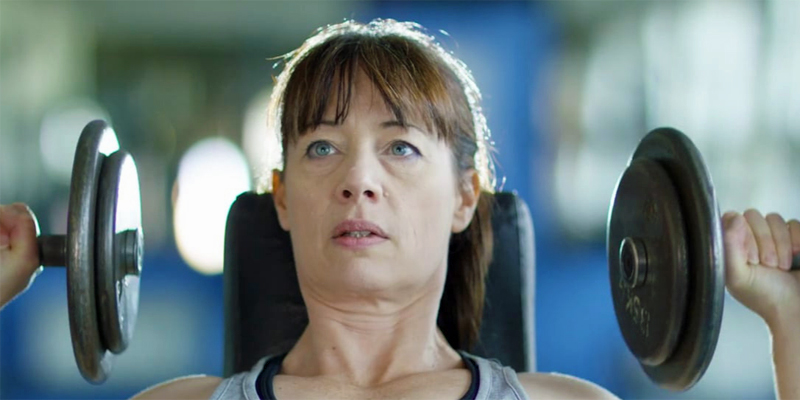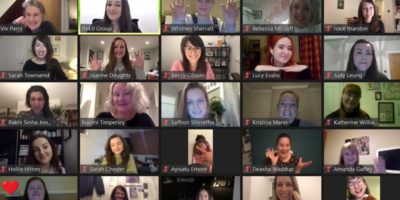Manon Bradley is the development director of the Major Projects Association, an organisation with the purpose of improving the initiation and delivery of major projects. She is also director of Strength 2 Strength, her consultancy specialising in helping companies harness the potential of a fully diverse workforce. Manon is also a competitive drug-free power-lifter and during the 16 years she has been competing she has won 13 World Championships, nine European Championships, held seven World Records and a host of British titles and records.
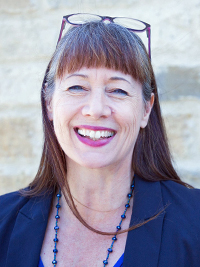
“I want to show girls and young women that you can be a strong woman and spend all your day in the gym kit. You can change the world, you can be who you are, you can be what you want to be. You don’t have to conform to society’s beliefs.”
Finding fundraising
I did a degree in psychology as I didn’t really know what I wanted to do. When I was doing A-levels, my friend was doing psychology, so I thought that sounded good and I did the same. Having decided not to pursue psychology professionally, either as an educational psychologist or clinical psychologist, I drifted into fundraising.
My first proper fundraising job was working at the University of Salford. Salford has an excellent Master’s programme and, at the time, they made it available to staff free of charge. So, if you worked for the university you could sign up for these courses because the additional cost of one person sitting at the back of the room was nothing.
Master of my own destiny
The programme was called the modular Masters, which as long as you had the entry requirements, you could pick and choose whichever courses you want. I wanted to do economics, marketing and sociology. So, I filled out my form, and I sent it off to whoever, whichever department reviewed these things and I got a phone call from somebody, I think he was from the personnel department.
He said to me: “I see that you’ve applied for the modular Master’s Course, to do it through the university scheme,” and I said, “Yes.” Then he said: “It’s not really for administrative staff.” Because I was a relatively new graduate and I’d come into the into the fundraising team, I was there as essentially a kind of executive assistant role.
He said: “It’s not really for people like you.” And I said: “So are you telling me that only the academic staff are allowed to improve and better themselves, but I as a member of an administrative team, it’s not for me to try and improve my lot in life and to develop my skills and knowledge?” He replied: “It’s not really aimed at the admin,” and by that we both knew he meant female admin staff.
Unbeknown to him my office was actually next door to the office of the vice-chancellor. The vice chancellor’s PA was a lovely lady called Hazel, who worked eight to four every day and then she’d be gone. So, at about half-past four, I would often put the kettle on, and pop my head around the door to see if the vice-chancellor wanted a cup of coffee. Quite often, if he didn’t have meetings, probably about once a fortnight, we would have a cuppa and a chat. Unfortunately for the fellow in personnel, he didn’t know that. I then happened to mention my Master’s degree application to the VC over a cup of coffee and a flapjack.
I got a very apologetic letter the very next day, explaining that of course the Master’s degree was available to admin staff. They would be very happy, not only to give me the opportunity to be educated at no fee, but I was also to have £100 pounds per year book allowance. So now as well as my psychology degree I have a Master’s degree that covers economics, marketing and sociology. But if it wasn’t for being based in the office next door to the vice-chancellor that would have never happened.
Refusing to take ‘no’ for an answer
It’s also because I don’t take ‘no’ for an answer. And particularly, I don’t take ‘no’ for an answer when it’s not rules and regulations, but actually an old-school man, telling me what I can and cannot do simply because he sees me as a little girl. In reality there wasn’t anything in the rulebook that said I couldn’t do it. It was just his prejudice against me because I was a woman in an admin role. To this day I try really hard to make sure that people’s prejudice doesn’t shape the lives of other people, particularly those who don’t have a voice.
I worked in university fundraising, and I stayed in the fundraising sector for quite some time as a professional fundraiser. My last fundraising job was for a charity that supported bereaved children. But it’s not easy to do that job for a long time. It’s emotionally draining. So, I looked for a new avenue, I thought, well, I, you know, I don’t want to do this job anymore. I’m exhausted. But I don’t really want to be fundraising against this charity, I really want to take another type of job.
Champion of gender balance
The new job I found was as an Administrator of the Major Projects Association [MPA]. Today I’m development director of the Association. What I’ve done over the last 16 years at the MPA is to take the job and make it my own, and grow the organisation and grow the job. We’re now twice the size and the membership has grown through huge efforts on my part. What we do and what we deliver is quite different from what it was 15/16 years ago.
I work four days a week for the MPA, and typically that involves making sure that members know what they’re getting, and that they’re fully informed it’s a lot of communication with members. My job is to try and recruit new members as well. So quite often, I’ll have meetings (or Zoom meetings as it is at the moment) with people to talk to them about the benefits of membership. We also produce a lot of reports so I spend quite a bit of time writing blogs, or editing reports.
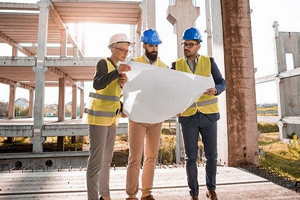
So, my typical week bounces from producing reports, looking after members and thinking about what our next event should be and who we should be having speaking at it. I’m very focused on equality, diversity and inclusion.
The other day a week I take off my MPA hat and I put on my Strength 2 Strength consultancy hat. My consultancy work is specifically about helping improve gender balance within major projects and infrastructure.
Sincerity and Stamina
At the moment I’m juggling a few different projects. The foundation of this consultancy is a piece of work that I developed over a number of years, which is a system map of the barriers to female participation in this field (infrastructure and construction). It looks at the problem from the point of view of systems thinking. I’ve created a huge map with all of the different potential barriers and then created a diagnostic tool, which enables you to understand whether that particular barrier applies to your company or not.
I’m using that to the moment to help develop a training course for infrastructure leads in Colombia. I’m also developing what I’m calling a Sincerity and Stamina Framework. I think that being sincere about your equality and diversity efforts, and having the stamina to keep going when things fall apart are two critical factors that predict success.
So, I’m doing this very practical work that’s paying the bills, and I’m doing this kind of thought development piece – I’m never bored and I’m always busy.
Impact of COVID-19
I’m working from home, which is something I’ve never enjoyed but I’m having to learn to embrace it. It means you can do the washing in the middle of the day in between doing other things. My heart goes out to anybody who’s juggling more than just their own job and life though – anybody that’s got caring responsibilities – because I think it’s impossible.
I’m in a household of two – my partner works and has been going out to work throughout – so personally, I haven’t been impacted too much, but professionally, I’ve been impacted a lot. because of the lack of networking.
The beginning of 2020 was not, in retrospect, the best time to reduce your income and set up your own consultancy because you make connections by bumping into people at events but all the networking opportunities that existed before just disappeared overnight. So, I’m looking forward to that coming back.
Statistics for gender balance in construction and major projects
According to Go Construct, – an organisation proving information about careers in construction- women make up only 14% of the construction workforce. But apparently, 37% of the new graduate entrants are women. So perhaps things are looking up – but my own experience in this space is that actually, when you get to senior levels, those numbers just drop through the floor.
There are very few female C-suite executives in this space. I’m not saying that they don’t exist but they’re few and far between, and that speaks to the gender pay gap, which, for construction, it’s the worst sector in the UK, according to the Government Equalities Office.
The reality of what needs to change is that it’s several things. This is the frustration that I had ever since I started thinking about this issue from the point of view of the systems map. People are trying to address this as one problem, or perhaps one problem at a time, but the reality is it’s all interconnected. You can’t impact one part of the map and ignore the impact on something else. So, you tweak one area, and it’s going to impact another area.
There are problems and challenges everywhere across society, across the way that we talk about construction and engineering type careers, the stereotypes and society. How many careers advisors know that working in major projects is an interesting, exciting and a reasonably well-paid career?
The typical feeder routes for people who are professionals into this space are civil engineering degrees and yet we know that women leave engineering degrees and don’t go anywhere near engineering as a career. Half of the women that graduate with engineering degrees do not take up a career in engineering. That is a sad state of affairs. It’s something happening during that degree that makes them think: “No, it’s not for me.” 50% of the women do that, so there’s something going on there.
Recruitment and selection processes can be terrible. Talent management can focus on a particular set of skills, which are not proven to have any link to performance and corporate cultures are not always attractive for women.
There can be the lingering assumption that childcare is mostly woman’s work as well as all the unpaid labour that women undertake at home and at work. We’ve seen it through COVID and lockdown – working mothers at breaking point because they are expected to put in a day’s work, home-school the kids, do all the online shopping and take care of the home.
There was a bit of a peak early on in the first lockdown of fathers taking on more responsibility but from what I’ve read that has dropped off. To be a woman in a male-dominated environment you have had to battle on so many different fronts to get there. Quite often these people who do it are exhausted, and COVID has probably added to that for them.
A complex problem with no single solution
It’s really difficult to know what to do because there isn’t a single answer. But people want simple single answers to these things. And unfortunately, they don’t exist. Equality, diversity and inclusion work is not a project that you can start and finish. It’s a practice. It’s something that you have to just do over and over again, you have to incorporate it into everything that you do.
Organisations like HS2, Network Rail, Transport for London and Highways England have been working on collaborating to try to make it easier for suppliers so that they’re reporting the same stuff in the same way. They’re not having to duplicate all of that work, and that’s vital.
It’s really important to ensure that thinking about equality and diversity runs throughout every aspect of your projects. We need to make sure it’s not just happening at the client level, but that people further down the supply chain are considering those things as well. But collecting the data itself doesn’t tell us anything – it has to be combined with intervention measures. We need to understand those interventions and use the data to tell us what is happening and what works.
Becoming a powerlifter
In the late 80s and early 90s when there was mass unemployment, there was a TV programme called Boys from the Black Stuff and there was an unemployed character in it called Yosser Hughes. He used to say: “Gizza job! I can do that.” And I kind of always had that attitude, that little voice in the back of my head, saying “I can do that”.
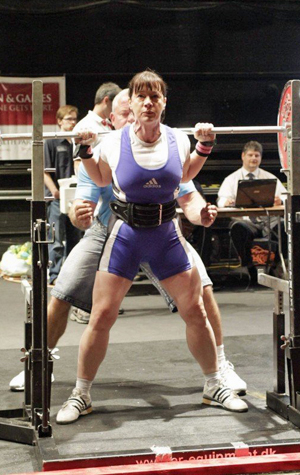
I’d already been training in the gym with weights more than ten years at that point, so I was quite strong. A chap started coaching me in the gym and showing me what was necessary to compete, so I entered a competition and won it, and immediately qualified to take part in the European Championships a month later – which I won. I became one of those overnight sensation stories (even thought I’d actually been lifting for ten years previously).
Well-meaning advice
I now have a gym in my house but in the past, I used to go to commercial gyms to train. Typically, I might do five minutes warm-up on the bike and then I’d just train with weights because the way to get good at bench pressing is to do lots of bench pressing. The fact that I’ve got a World Record and held the World Championship multiple times is testament that is a strategy that is quite effective.
So, I’d go in and I just bench press and bench press and bench press and just keep going. I could be on the bench for an hour and a half.
One day a well-meaning personal trainer came up to me and said: “Every time I see you all you’re doing is weights. I think you’d benefit from doing a little bit more cardiovascular work.” His heart was in the right place because generally, people should be trying to develop all-round fitness and be good at all sorts of different things, but as a specialist bench presser, that would actually take away from my ability to bench-press effectively. It was funny.
Smashing gender stereotypes with a double whammy
It makes me giggle when I smash the gender stereotypes of the men in the gym. They see me, and it’s kind of like a double whammy – it’s not just that I’m a woman, it’s that I’m a middle-aged woman. And so, when they see me and I now have grey hair, because I haven’t bothered to colour it for a year, they just make assumptions that I’m that I fit that little old lady stereotype kind of thing. I then go and smash it in the gym. That really makes me laugh. I’ll admit that is one of the main reasons I do it has to do with the stereotypes.
I think we’re going backwards a little bit in terms of gender roles and expectations. The pressures that young women face nowadays, to conform, to do the whole hair and makeup, and to just “be kind”, is one of these little things that really grinds my gears because it’s always directed at women. Young men and never asked to “be kind”. Young women are expected to make space for everybody and everything all the time. They’re under immense pressure, so much more than I was at that age.
I want to show those girls and young women that you can be a strong woman even if you spend all your day in the gym kit. You can change the world, you can be who you are, you can be what you want to be. To be a woman you don’t have to conform to society’s beliefs that just because you’re strong you have to be a man, or just because you’re a man, you have to be strong. Challenging stereotypes is a wonderful thing. I enjoy being part of that and challenging the notions people have in their heads about what it means to be a woman.
International Women’s Day
I used to think that International Women’s Day was a celebration. I’m not sure I feel that at the moment. It feels like the world is a very scary place if you’re a woman
Women are being written out of legislation all around the world. The news in the newspaper today is that hundreds of Nigerian girls have been released after they were kidnapped. But hundreds of girls have been kidnapped in Nigeria in over the years and it barely makes the front page.
That just reminds me that women, particularly white women in the UK, have got a lot of rights and a lot of freedom, but then it can be so quickly taken away. Women in Poland have no right to an abortion, not at all, even if they’ve been raped or attacked, and if they seek out an abortion, they are the ones who are then persecuted. How can that be? It’s like something from The Handmaid’s Tale.
At the moment I see International Woman’s Day as a rallying cry. I hope it’s a bit of a wake-up call for women around the world and men who are supportive of women to say: “Enough is enough. Women should be equal citizens in the world.” I don’t think we are at the moment. In many places in the world, we are still very much second-class citizens. And our rights are just being written out of the law, we’ve been losing ground at the moment. So, I would like to see people rising up and demanding equality.
Women, as a sex class are an oppressed group. It’s sad and depressing that the fundamental point of International Women’s Day and why it exists, is because we are oppressed and because we do not have equal rights and equal access around the globe.
Breaking down the barriers and creating a more inviting place for women to work
With my Major Projects Association hat on we’re going to start setting some quite tough challenges in the major projects and infrastructure space regarding equality and diversity, so watch this space.
I’d like to grow my consultancy work. If you’re in a male-dominated engineering, construction, infrastructure type space, and you don’t have enough women working with you get in touch, because I’ve worked out what all the barriers are and I can help you to understand what they are and how to break them down and how to create a more inviting place for women to work.
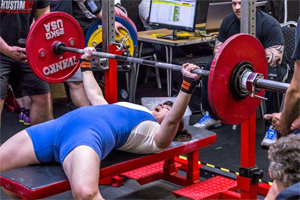
When lockdown is over, I’m looking to get back to some kind of normality. I just want to drink champagne with my girlfriends, to hear the pop of a cork and the laughter in their voices. That is the thing that I miss, so much. So hopefully it won’t be too long before we can all be together again.
https://www.linkedin.com/in/manon-bradley-005b8112

